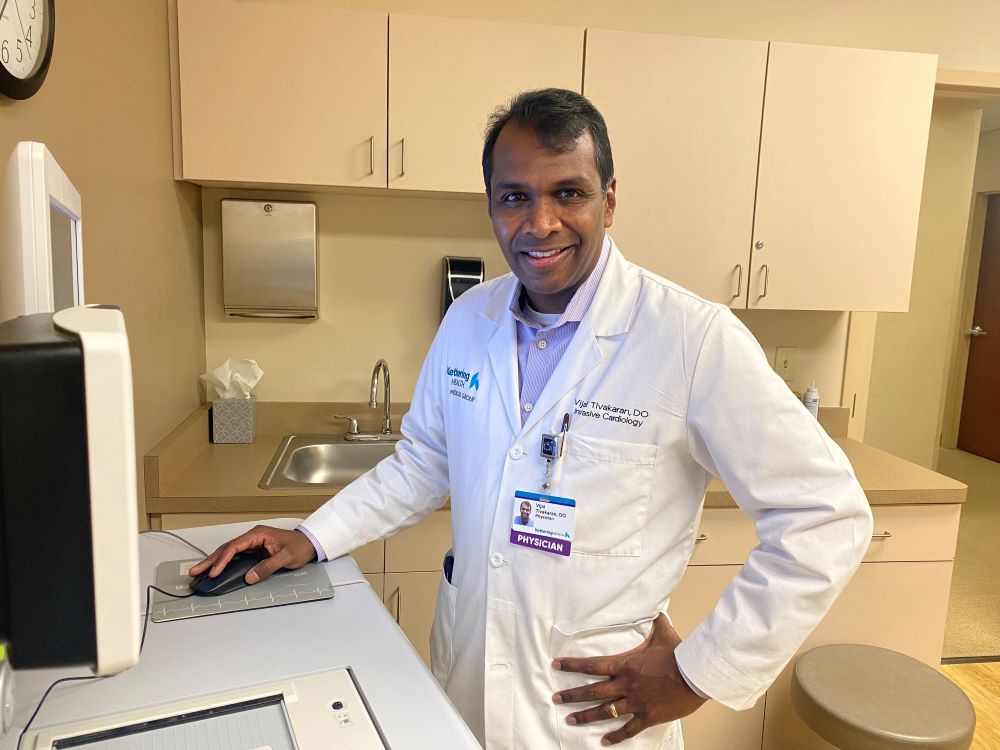Heart and Vascular Care
Want to learn more about this at Kettering Health?
At a Glance
Q: What should I do to improve my heart health and lower my risk of heart disease?
A: Improving heart health starts with tracking your blood pressure, cholesterol, and other numbers, plus adding small activity and diet changes. The article also covers
- How the heart pumps blood through the body
- Why knowing your numbers helps prevent heart disease
- How short daily walks support heart health
Few moments frustrate us like seeing the check engine light. The glowing warning, appearing suddenly, reminds us that under the hood exists a dramatic world of metal, electricity, and contained explosions.
It’s not unreasonable that we forget about our engines as they crank, churn, and propel our multi-ton vehicles toward the grocery store. But to overlook them entirely, putting off the routine ways we’re to maintain them, will often lead to that small dashboard light turning our attention back to these hidden marvels of machinery.
Like the engine, another hidden marvel works dutifully as you drive to the grocery store. But unlike your engine, this works day and night as you drive, shop, and sleep. It’s your heart.
And it’s rather incredible.
A small muscle with big purpose
No larger than the size of a fist, the heart makes even the most impressive engines seem like grade-school STEM projects. Which might be why Dr. Vijai Tivakaran, a cardiologist, can make this one muscle the focus of his 20-year-long career—and still be impressed.
“The human heart still amazes me,” he says, “in its ability to function as a pump.” In fact, the human heart pumps 2,000 gallons of blood a day through 60,000 miles of blood vessels (that’s longer than twice the circumference of Earth). In a week, that’s enough blood to fill the average backyard swimming pool. And over a lifetime, the heart will pump 54 million gallons of blood—or roughly 54 water towers’ worth.
To do that, the heart beats “60 to 100 beats per minute for your entire life,” Dr. Tivakaran says. And over that lifetime, it will beat more than 2.5 billion times, producing a total of nearly 3 million joules of energy—or more horsepower than two semi-truck engines combined.
Remarkable in its strength and endurance, this small muscle has a big purpose.
But it isn’t invincible.
Don’t wait for the “check engine” light
Thankfully, our hearts are incredibly reliable, functioning without our noticing. But we often overlook them, setting aside ways to care for our hearts—until the body’s “check engine” light grabs our attention.
“People wait for something bad to happen to their heart,” Dr. Tivakaran says, “before they are willing to make a change.”
And doing so can lead to catastrophic consequences.
Today, heart disease remains the leading cause of death in the U.S. The CDC estimated that in 2020 nearly 700,000 people died from heart disease—more than the deaths from car accidents and all cancers combined that same year. Many of those deaths followed preventable heart conditions.
“Don’t wait for symptoms,” Dr. Tivakaran warns. “The best treatment for heart disease is to be proactive about your health.”
Small changes for a big difference
Being proactive about your heart doesn’t require dramatic first steps. To start, Dr. Tivakaran recommends getting to know “your numbers.”
These numbers include your
- Blood pressure
- Fasting blood glucose or hemoglobin A1c (your body’s blood sugar the past 90 days)
- LDL cholesterol (the bad form of cholesterol)
- Weight or body mass index
Your doctor can check and tell you these levels. Dr. Tivakaran also encourages that “between physician visits, you can monitor your blood pressure and weight at home.”
Today, a normal blood pressure reading is less than 120/80 mm Hg. Your doctor will work with you, looking at your medical and family history, to determine a healthy range for your other numbers.
Along with knowing your numbers, include fresh foods in your diet. And do what you can to avoid salt. Even so, for many people, having access to or affording fresh foods is difficult. “Unfortunately, . . . a large portion of our population lives in food deserts with no grocery stores to provide fresh food,” Dr. Tivakarn reminds us. That’s why he emphasizes making time to exercise in small ways. “Start by taking daily short walks,” Dr. Tivakaran says, “and eventually build up to 150 minutes per week,” or thirty minutes, 5 days per week.
These small habits—knowing your numbers, adjusting your diet, exercising weekly—make a big difference in helping your heart help you.
The hardest working muscle
The human heart is, indeed, impressive. In the time it takes to read this, your heart pumped nearly four gallons of blood, beating nearly 300 times.
Considered the hardest working muscle, the heart lies at the center of your health and well-being. So, it makes sense that Dr. Tivakaran offers this advice:
“I encourage everyone to love their heart.”










